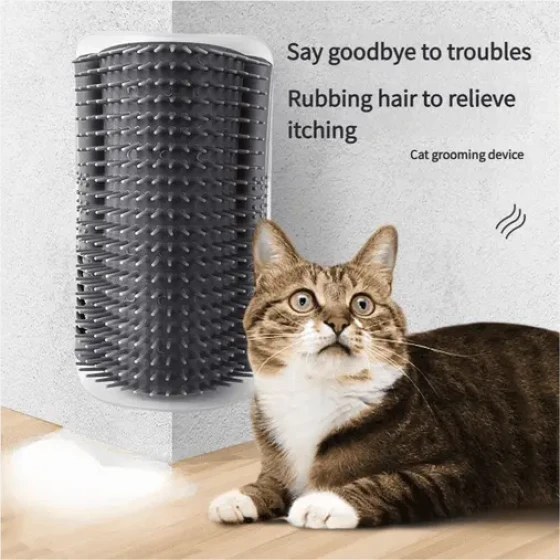What are the signs of a cat being nervous? How to relieve a cat's nervousness?

It is well known that cats are naturally timid, and not only that, cats are very sensitive animals. Things we usually do not pay much attention to may cause stress to cats. If the owner cannot relieve their stress in time, it may lead to cat depression. Therefore, understanding the signs of cat nervousness and how to relieve their nervousness is very important.
1. Signs of mental tension and depression in cats
1. Anxious cats
An anxious cat appears nervous, crouching low to the ground, some may pant or shed hair, muscles tense, pupils dilated; these are common symptoms of an anxious cat.
2. Aggressive behavior
A usually gentle and affectionate cat may suddenly change temperament, scratching and biting their beloved owner. Such abnormal behavior definitely has a reason. It is very likely that the cat feels unwell and should be taken to a veterinarian. Sometimes cats also vent their frustration by scratching furniture and chewing clothes.
3. Indoor territory marking
Certain changes in daily life or the addition of a new cat to the household can trouble and suppress the cat. In this case, the cat may urinate inside the house. Wet areas should be cleaned thoroughly with disinfectant to remove the cat’s scent and prevent it from returning to urinate in the same place.
4. Nervous grooming
Some cats under stress show overly picky grooming behaviors, licking or chewing on certain parts of their fur without reason. This often leads to dermatitis, eczema, or bald patches. For such behaviors, veterinarians may prescribe sedatives to soothe their anxiety and depression.
5. Chewing woolen fabrics
Certain oriental breeds (detailed introduction), especially Siamese and Burmese cats, sometimes particularly enjoy biting wool sweaters or other knitted clothes. This behavior, reminiscent of kittenhood, is also a result of some kind of repression.
2. How to relieve a cat’s nervousness
When you first have a kitten, you might think to prepare a cute fluffy ball to attract its attention, but some kittens are naturally very shy and will hide when you look at them. If this happens, the following two suggestions might help you.
During the kitten’s first week in a new home, they behave cautiously and appear very timid. However, as they gradually have more contact with people, this timidity lessens. Give them more space and don’t rush to get familiar with them. When they feel comfortable in the new environment, they will be happy to approach you.
To relieve a cat’s nervousness, gently pet them (at first, to prevent scratches, you can wrap them in a thick towel), softly stroke their head and talk to them gently. Doing this at a fixed time every day will help your shy kitten quickly trust you. Then, even without a towel, it will allow you to stroke its head. Remember, gaining a kitten's trust requires enough patience!
“Temptation” can also work wonders for a nervous kitten. Try preparing a delicious healthy meal for the kitten; when it becomes so focused on eating that it forgets its fear and enjoys the food, you can gently touch its head—of course, gently without sudden moves. This requires persistent patience from the cat’s owner, but usually, your pet will eventually accept and enjoy your affection.
Cats are very perceptive animals and can sense how you treat them. If a cat refuses you, it might see you as a threat. You can try approaching the cat in a different way to gradually ease its nervousness toward you, and soon the cat will accept you.





